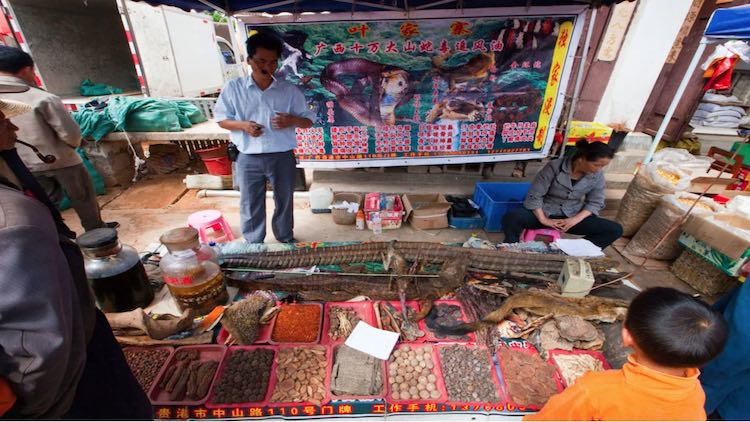China’s Wildlife Meat Ban In The Wake Of Coronavirus Outbreak May Not Work

By Navin Singh Khadka/thethirdpole.net
Conservation campaigners have said China’s ban of trade in wild animal meat cannot be effectively implemented as it still allows trade in wildlife products for use in Chinese medicines, clothing and ornaments.
They have warned that these exemptions are loopholes that will pave way for the buying and selling wild animals’ meat – just as it did in the past. The Standing Committee of the National People’s Congress announced a ban in the last week of February after suspicions that wildlife sold at a meat market in Wuhan was the source of the current Coronavirus outbreak. China’s top legislature has also initiated a process to revise the country’s Wildlife Protection Law. “Bear bile to treat Coronavirus patients” Just last month an agency that investigates wildlife trade reported that the Chinese government had said an injection that contains bear bile should be used to treat patients with serious cases of COVID-19 patients. Tan Re Qing injections are among the recommended treatments for ‘severe’ and ‘critical’ cases of coronavirus in the COVID-19 Diagnosis and Treatment Plan of the National Health Commission [of China], published on 4 March, according to the London-based Environment Investigation Agency. The website of the Chinese health agency does show the name of the injection which has “fel ursi”, or bear bile, on the ingredients list.
They have warned that these exemptions are loopholes that will pave way for the buying and selling wild animals’ meat – just as it did in the past. The Standing Committee of the National People’s Congress announced a ban in the last week of February after suspicions that wildlife sold at a meat market in Wuhan was the source of the current Coronavirus outbreak. China’s top legislature has also initiated a process to revise the country’s Wildlife Protection Law. “Bear bile to treat Coronavirus patients” Just last month an agency that investigates wildlife trade reported that the Chinese government had said an injection that contains bear bile should be used to treat patients with serious cases of COVID-19 patients. Tan Re Qing injections are among the recommended treatments for ‘severe’ and ‘critical’ cases of coronavirus in the COVID-19 Diagnosis and Treatment Plan of the National Health Commission [of China], published on 4 March, according to the London-based Environment Investigation Agency. The website of the Chinese health agency does show the name of the injection which has “fel ursi”, or bear bile, on the ingredients list.

Latest Videos
















